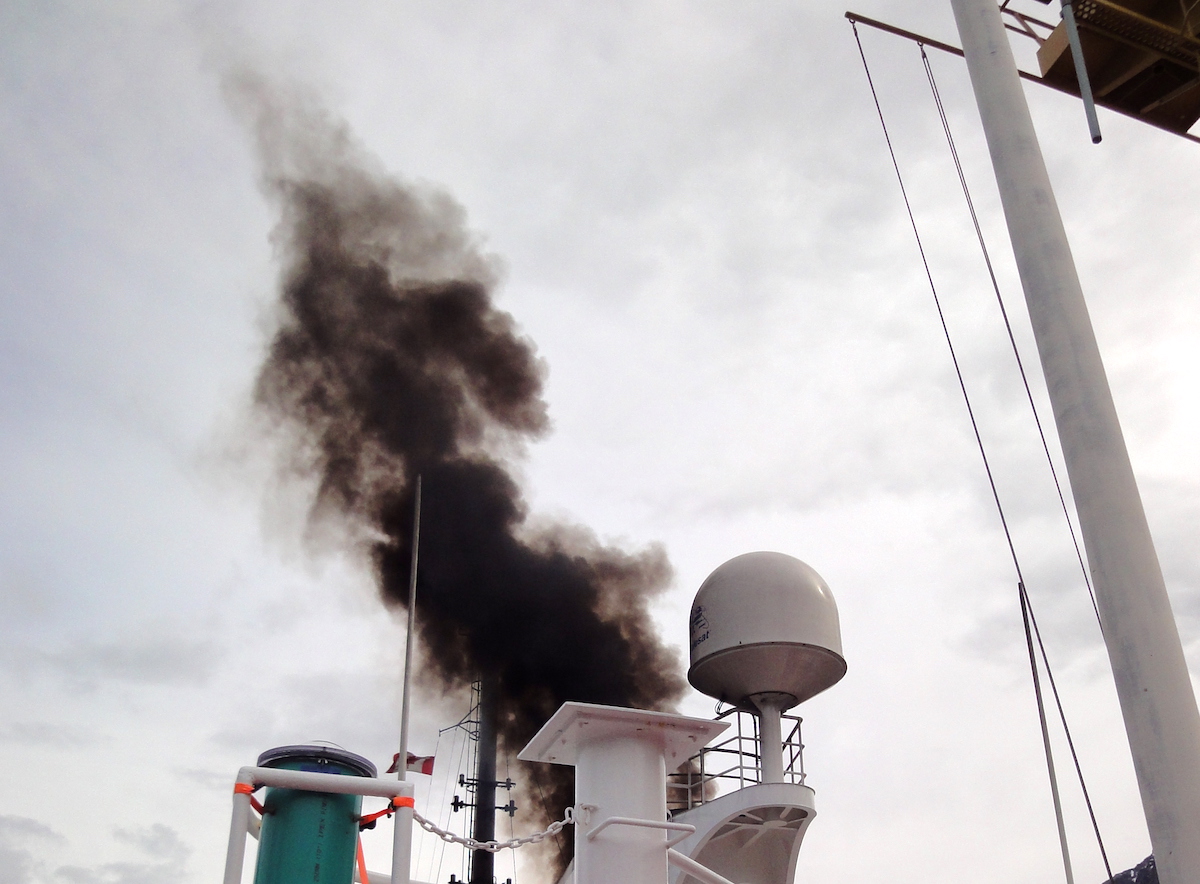IMO pushes back talks on limiting Arctic-warming black carbon emissions to 2020
A recent meeting of the UN's shipping agency decided to postpone hearing proposals to reduce soot emissions until next February.

The United Nations agency that oversees the shipping industry has pushed back plans to discuss putting limits on sooty exhaust that’s known to increase warming in the Arctic.
That means it will take longer to eliminate what Willie Goodwin, a member of the Inuit Circumpolar Council Food Security Committee and chair of the Arctic Marine Mammal Council, calls “the second largest contributor to global warming and to the melting Arctic.”
Proposals to limit black carbon emissions will be heard in February 2020, the International Maritime Organization’s Marine Environment Protection Committee decided at a recent meeting in London.
Goodwin had asked the recent IMO meeting to act right away on limiting black carbon.
“My people need action, not in five years, not in two years, but now,” Goodwin said. “Urgent action is needed to rapidly reduce the impact of shipping emissions on the Arctic.
Black carbon is contained in shipping exhaust. It remains in the atmosphere for only a few days to weeks, but it creates problems when it later lands on Arctic ice or snow, where it absorbs heat from sunlight and speeds up melting.
The Clear Arctic Alliance, a coalition of non-governmental organizations, said in a lengthy statement that it was dismayed by the lack of action by the IMO.
“After a decade of debate on black carbon emissions from shipping, IMO member states are squandering their chance to respond to its impacts on the Arctic,” said Sian Prior, the alliance’s lead advisor.
Prior said Arctic countries and those with an interest in the Arctic have a moral obligation to act on black carbon emissions.
She referred to a statement from Finland’s chair of the Arctic Council at this month’s ministerial meeting, which confirmed “support for enhanced national efforts and international cooperation to reduce black carbon emissions across the Arctic.”
The IMO told its member states to put forward “concrete proposals” on reducing black carbon emission for February 2020.
“It is a real shame that member states did not seize the opportunity to make some preliminary decisions … including that Arctic shipping should move away from heavy fuel oil to lighter fuels, which could immediately cut black carbon emissions by around one-third,” said Prior, whose group continues to lobby for an Arctic ban on the dirty, hard-to-clean-up fuel.
At the recent meeting, the IMO said it will continue to work to develop a ban on the use and carriage of HFO by ships in the Arctic.
The IMO also moved on measures aimed at reducing greenhouse gas emissions from ships: its members approved amendments to strengthen existing mandatory requirements for new ships to be more energy efficient and encouraged cooperation with ports to reduce emissions from shipping.